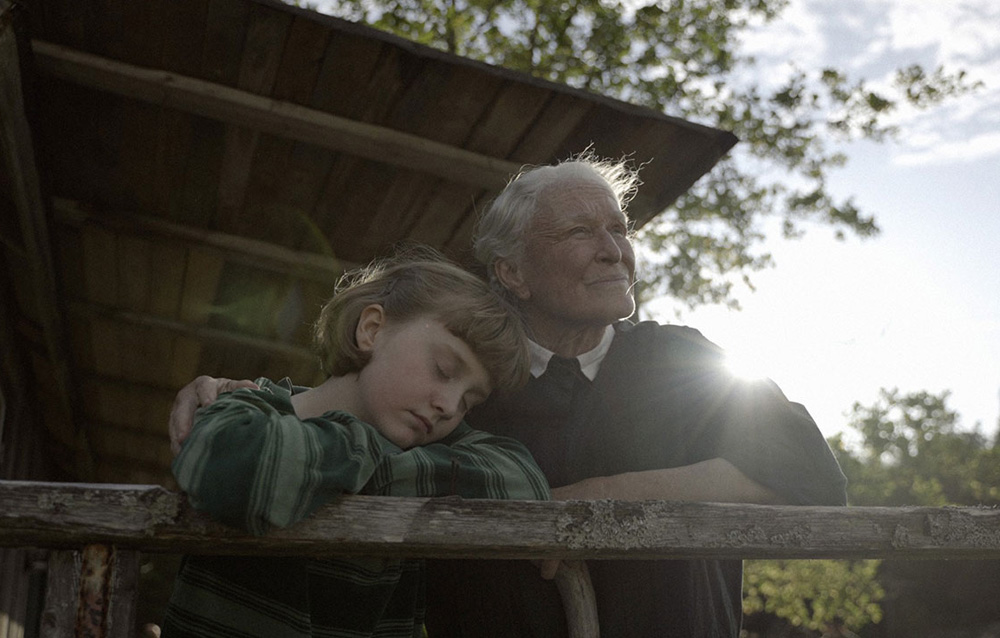Escapism has been hard to come by in the films of Charlie McDowell by design, with the director of “The One I Love” and “Windfall” seemingly most at home in a single location where people have no choice to confront the issues in front of them, often finding their own reaction to the unusual events that befall them as strange and unexpected as what they encounter. The distinctly adult concerns of his first three features make his latest “The Summer Book,” based on Tove Jansson’s staple of young adult reading lists since its publication in 1972, a bit of anomaly in his resume as well as the fact it’s his first without writer Justin Lader, but he proves to be unusually well-suited to telling the story of a family that heads to a cabin in Finland after the passing of their matriarch where presumably her young daughter Sophia (Emily Matthews) will have the time and space to heal in the care of her father (Anders Danielsen Lie) and grandmother (Glenn Close). Jansson intended “The Summer Book” for adults, yet its precocious protagonist has created a comfortable entry point to talk about death with the young and when McDowell has long brought a dynamism to difficult conversations that have to happen under one roof, he has made a film that respects that audience without ever pandering to them, making something for all ages when treating the subject with the seriousness it deserves.
While the confines of a house usually have a sense of claustrophobia attached in one of McDowell’s films, the fresh Finnish air practically wafts off the screen in the opening moments of “The Summer Book” when the family arrives to their island retreat. An introductory scene of ice melting along the shore as the last of the spring chill turns to summer isn’t the most subtle metaphor for what’s about to transpire, but it is also a nice hint that the rejuvenating power of nature isn’t to be underestimated as Sophia runs across the rocks to get to the cabin while her elders are slower to make their way in. Her grandmother has spent 47 summers on the property, but it’s the first for the family since Sophia’s mother died, making it entirely new territory for them all and while Sophia’s father quickly excuses himself to a back office to work, clearly unable to string together the words to talk to his daughter, Sophia and her grandmother walk about the island, taking in its wonders with a “magical forest” to traverse, bringing along with a handful of other distractions such as playing cards and fireworks to keep them entertained.
When the adults gingerly dance around any direct dialogue about Sophia’s mother, “The Summer Book” has an inevitably deliberate pace that could a little too slow for some, but the gentle adaptation by Robert Jones has a way of sneaking up on you when it is less about what’s been lost than preparing one to move on after such a sudden absence. Although the film never dips into the fantastical, it has that feel about it, thanks to the sun-kissed cinematography of Sturla Brandth Grøvlen (“Another Round”) and Close’s committed performance that’s grounded in all the right ways as the grandmother whose connection to the locale can make it seem like she has a deeper understanding of the world and her tightly wound pigtails and hunch endearingly making it appear as if she’s stepped out of a Grimm’s Fairy Tale. Close’s repartee with Matthews, when both their characters share a joie de vive in spite of the circumstances that led them here, is quite charming, and an acceptance that life goes on is easier to grasp when it flows so steadily in front of the camera. For an area where it may be tough to summon the words, they often aren’t needed in “The Summer Book” where time paired with a little tenderness can be the great revelator.
“The Summer Book” does not yet have U.S. distribution.




